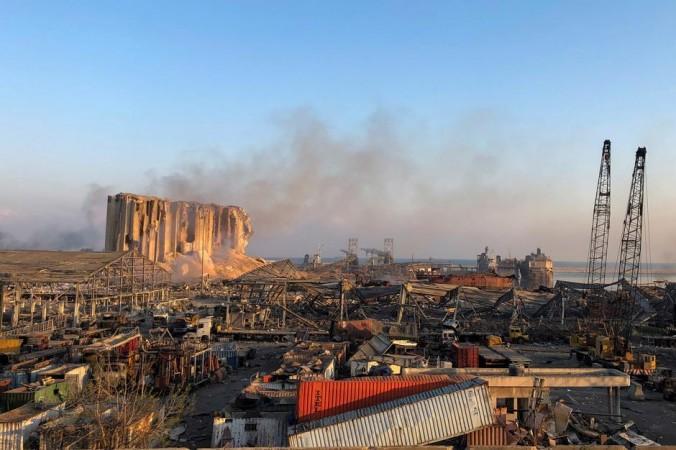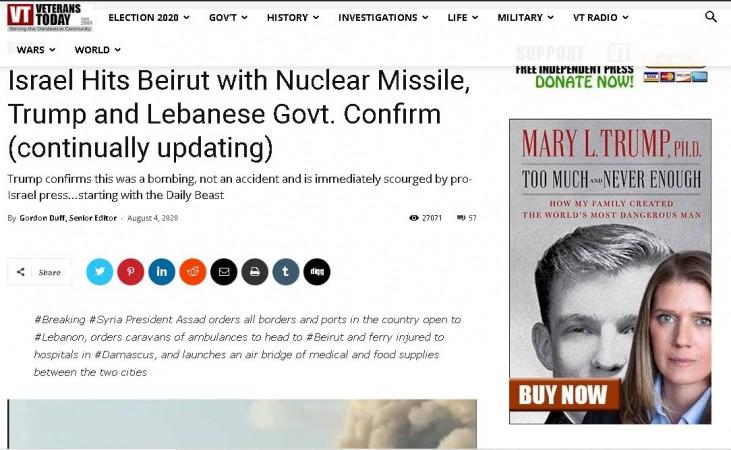The entire world is currently sympathising with Beirut over a massive blast that shook ground across the Lebanese capital late Tuesday. In the meanwhile, conspiracy theorists have resorted to contemplating the cause of the catastrophe.
As the explosion produced a visible blast wave and a classic mushroom cloud, claims are being made that a nuclear bomb had gone off in Beirut, killing 78 and injuring 4,000. The speculations of atomic detonation gained momentum after a news website cited that Israel had hit Beirut with a nuclear missile.

"The first explosion was caused by Gabriel anti-ship missile of Israel. The second explosion was caused by Israeli Delilah missile from F16," reported Veterans Today, sending online commentators in a frenzy.
Simultaneously, social media users fell for the nuclear attack fallacy and started circulating the information via Twitter and Facebook. "The media in the west claiming that this massive nuclear-like explosion is from "fireworks". NO, THE HELL IT WAS NOT!" wrote one Twitter user while another said, "The destruction in Beirut is far larger than you can ever imagine. The city seems like it has been hit by a small scale nuclear weapon."

Some even suggested that the Beirut blast was much more powerful and destructive than the US military's "mother of all "mother of all bombs" or MOAB.
Fact-Checking the claim
Although the exact cause of the explosion is still under investigation, nuclear weapons experts and Lebanese officials have unequivocally debunked the theory that Beirut was hit by a nuclear bomb.
Ed Lyman, a member of the Union of Concerned Scientists, said that a nuclear blast would have caused a substantial spike in radiation level, which was certainly not the case with Beirut explosion.
Martin Pfeiffer, a PhD candidate at the University of New Mexico asserted that Beirut explosion lacked major hallmarks of a nuclear detonation - a blinding white flash and a surge of heat. He further stated the formation of mushroom clouds is not exclusive to nuclear bombs as they are also produced when humid air gets compressed and causes the water in it to condense.
MIT Professor Vipin Narang, who studies nuclear proliferation and strategy, countered the MOAB claim as he said, "By comparison, the yield of a MOAB, our largest conventional bomb, is 11 tons TNT equivalent. This suggests a blast an order of magnitude bigger. To be precise, holy f*ck."
Besides, Lebanon's Prime Minister Hassan Diab has linked the horrific explosion to massive stocks of chemicals stored at a firecrackers factory since 2014, thus ruling out nuclear attack once and for all. The initial investigation, as per Diab, indicates that the blast was caused by an estimated 2,750 tons of ammonium nitrate left unsecured for 6 years in the warehouse.

Moreover, no incoming nuclear missiles could be seen in the countless videos that are doing the rounds of the Internet. In fact, several clips showed an explosion of firecrackers minutes before the powerful blast.
Therefore, it is safe to conclude that the Beirut tragedy was not nuclear in any which way, though the actual reason for the explosion is yet to be determined.

















